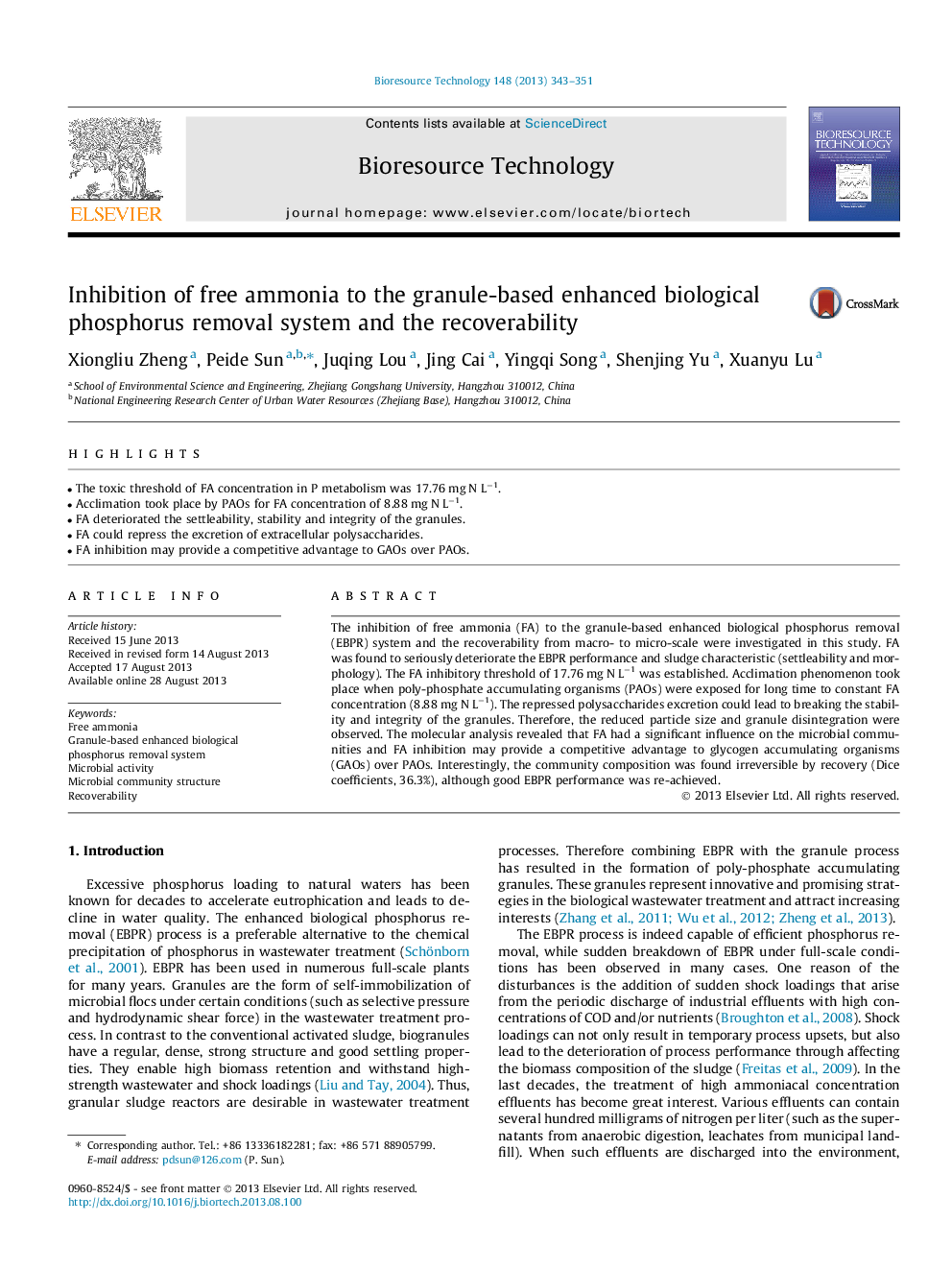| Article ID | Journal | Published Year | Pages | File Type |
|---|---|---|---|---|
| 7079915 | Bioresource Technology | 2013 | 9 Pages |
Abstract
The inhibition of free ammonia (FA) to the granule-based enhanced biological phosphorus removal (EBPR) system and the recoverability from macro- to micro-scale were investigated in this study. FA was found to seriously deteriorate the EBPR performance and sludge characteristic (settleability and morphology). The FA inhibitory threshold of 17.76 mg N Lâ1 was established. Acclimation phenomenon took place when poly-phosphate accumulating organisms (PAOs) were exposed for long time to constant FA concentration (8.88 mg N Lâ1). The repressed polysaccharides excretion could lead to breaking the stability and integrity of the granules. Therefore, the reduced particle size and granule disintegration were observed. The molecular analysis revealed that FA had a significant influence on the microbial communities and FA inhibition may provide a competitive advantage to glycogen accumulating organisms (GAOs) over PAOs. Interestingly, the community composition was found irreversible by recovery (Dice coefficients, 36.3%), although good EBPR performance was re-achieved.
Related Topics
Physical Sciences and Engineering
Chemical Engineering
Process Chemistry and Technology
Authors
Xiongliu Zheng, Peide Sun, Juqing Lou, Jing Cai, Yingqi Song, Shenjing Yu, Xuanyu Lu,
